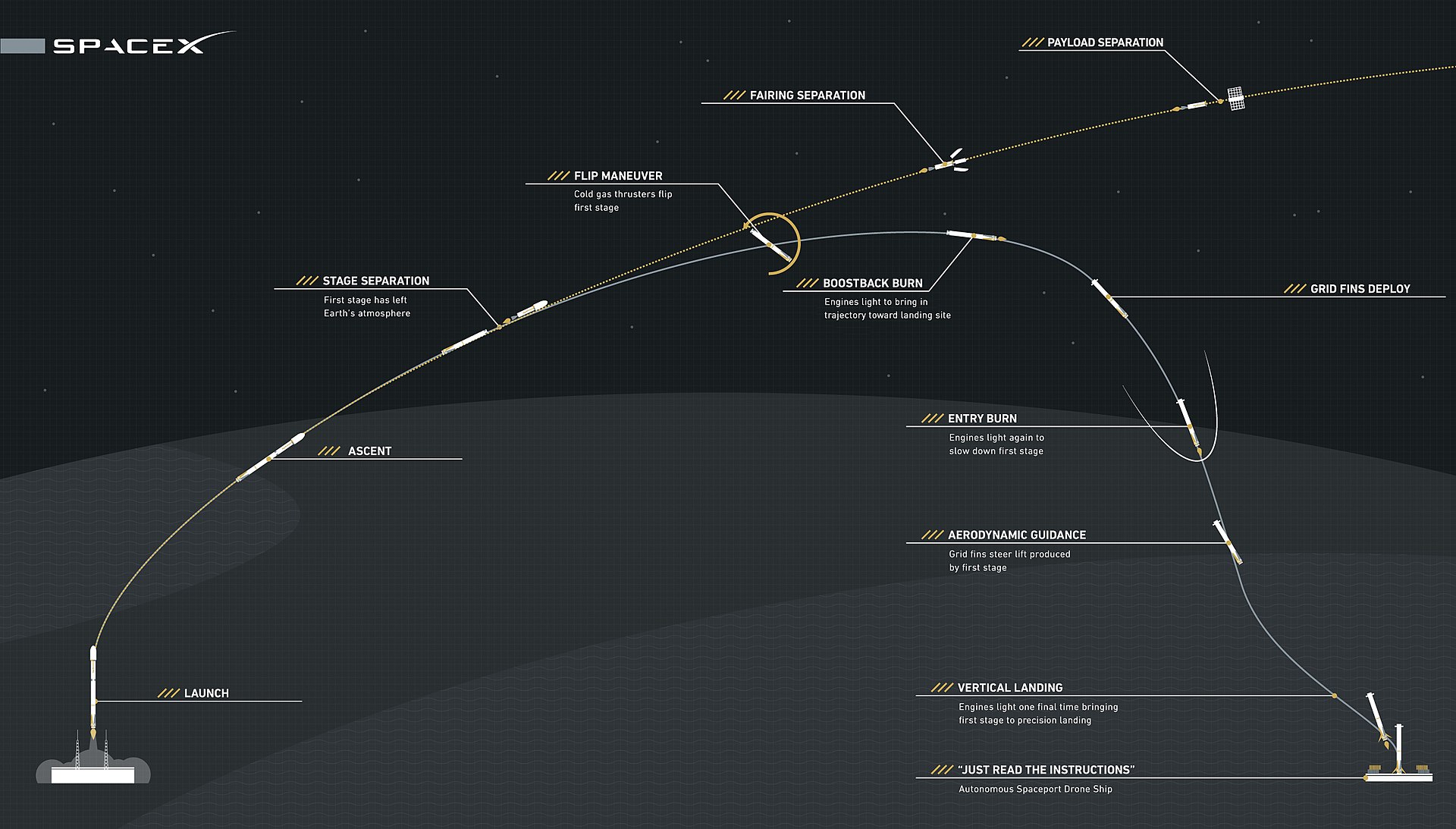Caine
Hardcore Member
After the failed resupply mission in June this year (CRS-7, https://www.youtube.com/watch?v=OAX7UFd70M8), SpaceX will launch its next Falcon 9 rocket tonight (assuming no further delays occur).
The primary goal of this mission is to deliver 11 satellites into orbit. The secondary goal is to land the first stage rocket (a test in order to achieve reusable rockets).
This launch marks the first attempt by SpaceX to land their stage 1 rocket on land (prior attempts tried to land on a platform at sea, e.g. https://www.youtube.com/watch?v=BhMSzC1crr0).
The difference with this launch from the recent landing by Blue Origin is that SpaceX is actually launching into orbit instead of "just" a vertical lift-off into space.
Webcast can be viewed here: http://www.spacex.com/webcast/ (archive: https://www.youtube.com/watch?v=O5bTbVbe4e4)
I'm looking forward to the launch. Hopefully history will be written today.
If you need some reading material until then, I recommend reading Tim Urban's SpaceX post on wait but why:
http://waitbutwhy.com/2015/08/how-and-why-spacex-will-colonize-mars.html
Update: webcast now live...
Oh wow!!! They did it!!!!
Primary mission is a success as well. Space flight may just have become significantly cheaper
<edit>http://www.space.com/21386-spacex-reusable-rockets-cost.html about 75% of rocket cost is the stage 1 booster rocket</edit>
<edit2>Some more background info: http://www.spacex.com/news/2015/12/21/background-tonights-launch</edit2>
The primary goal of this mission is to deliver 11 satellites into orbit. The secondary goal is to land the first stage rocket (a test in order to achieve reusable rockets).
This launch marks the first attempt by SpaceX to land their stage 1 rocket on land (prior attempts tried to land on a platform at sea, e.g. https://www.youtube.com/watch?v=BhMSzC1crr0).
The difference with this launch from the recent landing by Blue Origin is that SpaceX is actually launching into orbit instead of "just" a vertical lift-off into space.
Webcast can be viewed here: http://www.spacex.com/webcast/ (archive: https://www.youtube.com/watch?v=O5bTbVbe4e4)
I'm looking forward to the launch. Hopefully history will be written today.
If you need some reading material until then, I recommend reading Tim Urban's SpaceX post on wait but why:
http://waitbutwhy.com/2015/08/how-and-why-spacex-will-colonize-mars.html
Update: webcast now live...
Oh wow!!! They did it!!!!
Primary mission is a success as well. Space flight may just have become significantly cheaper
<edit>http://www.space.com/21386-spacex-reusable-rockets-cost.html about 75% of rocket cost is the stage 1 booster rocket</edit>
<edit2>Some more background info: http://www.spacex.com/news/2015/12/21/background-tonights-launch</edit2>
Last edited by a moderator:


